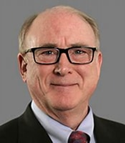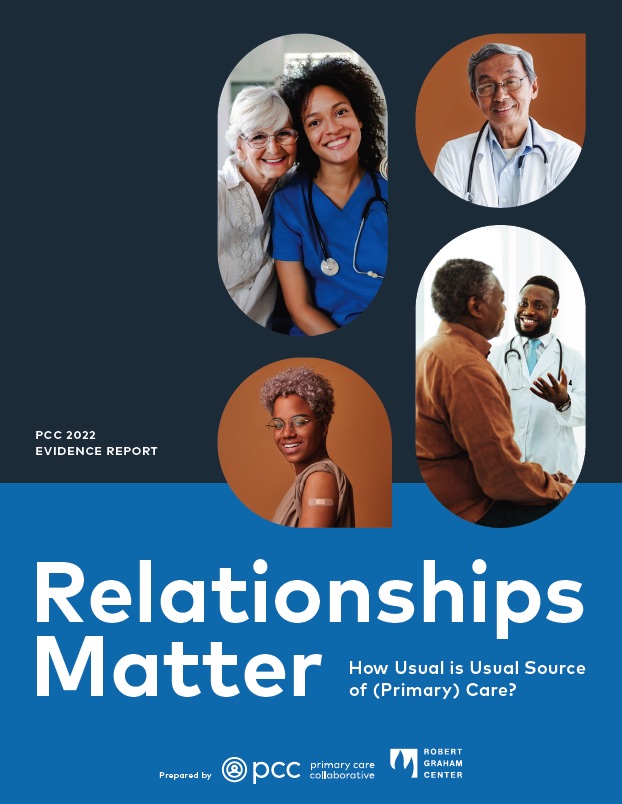You are looking at an archived version of our site. Please visit thepcc.org for a fresh, new experience!
July Lunch and Learn Discussion
Lunch and Learn (Formerly Journal Club) Meeting Highlights
Thursday, July 22, 2021
1:00 PM – 2:00 PM ET
The Journal Club hosted two primary care researchers, Dr. Sanjay Basu, Director of Research at the Harvard Center for Primary Care, and Dr. Eugene Rich, Senior Fellow at Mathematica, who presented their papers, Association of Primary Care Physician Supply With Population Mortality in the United States, 2005-2015 and Primary Care Practices Providing a Broader Range of Services Have Lower Medicare Expenditures and Emergency Department Utilization.
Dr. Irene Dankwa-Mullan and Dr. Jack Westfall facilitated the group’s questions and a discussion about policy implications which focused on the importance of paying primary care differently, strengthening the primary care physician workforce, and expanding the range of services delivered by primary care practices to better meet patients’ essential physical and common mental health needs.
Summary of Discussion Highlights:
- Finance whole-person care:
- Do not pay only for utilization but pay for wraparound services through a chronic-care model.
- Pay for outcomes on a risk-adjusted basis where the risk calculator is invisible to the clinician.
- Strengthen the medical education pipeline:
- Medical schools are graduating fewer primary care clinicians.
- Identify medical education, residency and post-residency incentives that improve the rate of primary care specialization among students.
- Expand team-based care:
- Utilize the full range of the primary care workforce including mobile pharmacists, mobile health workers, social workers, and so on, allowing each profession to work at the top of their license.
- Conduct more research on the range of services provided in practices that include NPs and PAs.
- Integrate behavioral health and primary care:
- When practices provide a broader range of services (including counseling), their Medicare beneficiaries subsequently experience fewer ED visits and lower total spending.
- Include team members who have behavioral health skills and take advantage of existing primary care physician competencies.
- E.g., family medicine has historically included training in basic mental health counseling and cognitive behavioral therapy.
Senior Fellow, Mathematica
Eugene Rich MD is Senior Fellow in Mathematica’s DC office. A general-internist health policy researcher, he has a career long focus on the influence of the policy, payment, and practice environment on health professionals’ decision making, including policies relevant to improving primary medical care. In addition to his expertise in health services and health policy research, he has deep experience with academic and private practice leadership, including physician hospital organization medical director and medicine department chair (Creighton University). read more
Chief Health Equity Officer/Deputy Chief Health Officer , Merative (formerly IBM Watson Health)
In her role at IBM Watson Health, Dr. Dankwa-Mullan is responsible for the global strategy for driving building clinical evidence for Watson Health solutions. This is accomplished through evaluation research, real-world evidence studies and implementation studies to support evidence-based practices to transform health care. She works with multidisciplinary teams at the interface of big data, cognitive computing and machine learning technology to inform healthcare delivery and clinical decision-making.
read more
Jack Westfall is a family doctor in Washington, D.C. He completed his MD and MPH at the University of Kansas School of Medicine, an internship in hospital medicine in Wichita, Kansas, and his Family Medicine Residency at the University of Colorado Rose Family Medicine Program.
After joining the faculty at the University of Colorado Department of Family Medicine, Dr. Westfall started the High Plains Research Network, a geographic community and practice-based research network in rural and frontier Colorado. He practiced family medicine in several rural communities including Limon, Ft. Morgan, and his hometown of Yuma, Colorado. read more
Co-founder & Head of Clinical, Waymark
Sanjay Basu, MD, PhD, is a physician and epidemiologist whose work focuses on the development and application of disease prevention models for low-income communities. As co-founder and Head of Clinical for Waymark, Sanjay oversees the company’s research and development function, including product, engineering, design, and clinical teams. His team is building a technology stack to enable community based care.
Prior to Waymark, Dr. Basu served as the Director of Research at the Harvard Medical School Center for Primary Care. Dr. Basu received his education from the Massachusetts Institute of Technology (MIT), Oxford University (as a Rhodes Scholar), and Yale before completing his residency in internal medicine at the University of California in San Francisco.
read more
What's New
August 16, 2024
- Page 1
- ››








